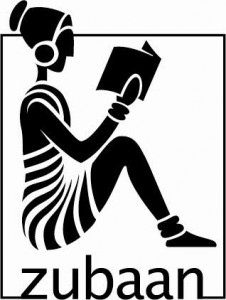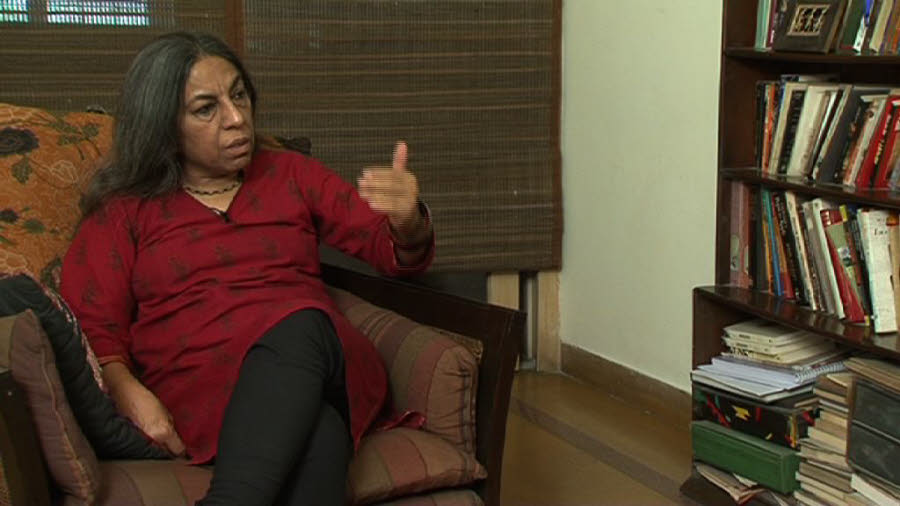Urvashi Butalia, Director, Zubaan Books, is an Indian feminist and historian. She is also the co-founder of Kali for Women, India’s first feminist publishing house, of which she was the Director. As an extension of Kali for Women, in 2003, she set up Zubaan, an independent non-profit feminist publishing house. Urvashi Butalia has also been active in the women’s movement in India. She has authored and edited many books on a variety of subjects including gender, media and history. Her book, ‘The Other Side of Silence : Voices from the Partition of India’ is one of her most popular works.
Tell us about your days with Kali for Women. What motivated you to start a publishing house that focused exclusively on women and what were some of the exciting things you got to do as part of Kali for Women?
Kali was set up in 1984. For some time before that, nearly a decade, I had been very closely involved in the women’s movement in India,
I looked around me in the movement and found that we were discussing all kinds of issues – patriarchy, economics, social frameworks and so on – but there was nothing about these in books. The only books that seemed to be there were usually written by the occasional foreign scholar who came to India, did a few months of research and wrote the definitive book about us. And these were the ones that we had to buy back at high prices. So, I began to think it was time to create knowledge about ourselves, to provide a forum for women writers, to encourage women to write and to believe in their writing, to reverse the flow of information that was always from west to east and north to south and to reflect the thinking that was going on in the women’s movement. That was the real motivation for Kali.working with groups focusing on issues of dowry and rape. The group I belonged to was called Stree Sangharsh, and among other things, we did street plays on these issues. I was also part of the original founding collective of the magazine, Manushi. After I finished my studies at university, I was very clear that I did not want to teach – I had studied English literature and although I loved the subject, it meant nothing to me in terms of the realities on the ground in Delhi and India. So I wanted to do something different. A job in publishing fell into my lap by accident; I fell in love with it immediately and decided to stay there. But as years went by, I began to realise how few books by and about women there were, and on asking my bosses about this, I was told things like, ‘But do women write?’ and ‘What do they have to say anyway?’ and so on.
We did many memorable books in Kali – among them, a history of the women’s movement called ‘The History of Doing: An Illustrated Account of Feminisms in India’, which continues to be in print today. We did a collection of essays entitled ‘Recasting Women: Essays in Colonial History’ which has become a standard textbook and a classic in gender and women’s studies. We did Vandana Shiva’s first book on the environment and women entitled ‘Staying Alive’. We did a lovely book by rural women from Rajasthan called ‘Shareer ki Jaankari’ and many more.
From Kali for Women to Zubaan. How did Zubaan come about? What did you have in mind when you set up Zubaan?
Zubaan is really a child of Kali. As people may be aware, although Kali was my idea and the initial work and setting up, as well as the choice of name, was mine, the actual work of setting up and putting Kali on the map was done by two of us, my then colleague Ritu Menon and I. We worked together for 19 years and then felt the need to go our separate ways. So, both of us set up our own independent imprints. I set up Zubaan, which basically took Kali’s work further, but which also expanded on Kali’s mandate to take in more fiction by women, and to bring out books for young adults. We felt that the changes that Zubaan brought in – more general books, attention to young readers – reflected some of the changes in the women’s movement. So, we continued to do our solidly feminist books, and also did more that addressed a wider readership but kept our feminist vision intact.
What does it mean to run a publishing house that focuses exclusively on feminist literature in India? What are the challenges?
The challenges are many. What it means is that you believe in each book you do, because the whole rationale of your publishing is your politics, and not commerce. For us, each book is important, and it is a fine balance to keep that political edge and not lose the market. The challenges are of course to stay alive, to ensure your books sell in a market that is heavily weighted in favour of the biggies, to see that your authors get a good deal and do not feel cheated, to see that the books get out to readers. But the biggest challenge is really to stay true to your politics and to survive in the marketplace. Also most people call feminist publishing, or women’s publishing, niche publishing, yet to me it is about half the world and that’s a very big niche!
How do you think women’s writing scenario has changed over the last 25 years in India?
I think today women writers know their work will be looked at, and that the publishing environment will at least be open and hospitable to it. They also have a choice. When we began, we were the only ones. Today, there are many; so women have a choice. Further, the old taboos about which subjects are possible and not possible, permissible and not permissible for women, have gone or are going. I think it’s a good environment and I hope it gets better and better – women writers deserve it!
Looking back at your journey as a publisher, how do you feel now?
I feel wonderful, I feel privileged, I feel I have been really lucky. I have enjoyed every moment of it, I have learnt so much, met wonderful people, and interacted with all kinds of people. The thing about publishing is that you are in touch with new ideas all the time, and the knowledge you have of them is not superficial, and that makes a difference. Also, I don’t know many people who have the good fortune to be able to so closely match their political beliefs and commitment, and their professional capabilities and their personal interests. So in many ways, I feel I have been quite blessed in this profession.
Zubaan publishes books in various categories including academic, fiction, non-fiction and autobiographies. Which of these categories do you feel gives you high visibility today? Further, which of these categories do you feel demonstrates high potential for growth going forward?
 I think all, but if you were to ask me to be more specific, I think general non-fiction is an area that has not been sufficiently developed and there is a lot to do there. Books for young adults (Young Zubaan) too are an area that can develop well. Academic books are steady and rock-like. As long as the research is cutting edge and the subject fresh, these books will last forever, as the hunger to learn will never go away.
I think all, but if you were to ask me to be more specific, I think general non-fiction is an area that has not been sufficiently developed and there is a lot to do there. Books for young adults (Young Zubaan) too are an area that can develop well. Academic books are steady and rock-like. As long as the research is cutting edge and the subject fresh, these books will last forever, as the hunger to learn will never go away.
7. What do you feel is the future of the feminist publishing industry in our country? Do you see more players coming in and the competition increasing?
I’m not sure. When we began, it was just us. At our peak we did about 15 titles a year. Today, there are two imprints, Zubaan and Women Unlimited, and between us we do about 50 titles a year (35 by Zubaan, 15 by Women Unlimited). There is Stree in Kolkata that does quite a few. Then there are the smaller independents such as Yoda, Navayana, Three Essays, LeftWord, all of whom do a good number. And of course, there are the biggies. So, as far as I am concerned, women’s publishing is now both in the feminist houses and outside, which is a good thing. I doubt there will be other specific feminist houses coming up, but women’s books are here to stay.
That of course raises the question of whether we will survive, and to this again I have no answer. I can say with confidence that we will never run out of ideas, especially new ideas, and I also know that the moment these ideas come out into the market they will be taken over by the big publishers, which is the way of life and we can’t really do anything about this. But personally, I am very interested in seeing whether a feminist house can sustain itself in the commercial marketplace and this is what I am now trying to do. If we had a crystal ball that could tell us this, it would help!
What can we look forward to from Zubaan in the coming years?
Many exciting books, many exciting projects. We believe that our main purpose is to do more and more books, to explore new areas, but alongside, we also do projects that help document the history of the women’s movement. We organize events around our books too. I think you can hope to see many more of these in the future, and of course hope to see exciting, cutting edge, unorthodox, feminist publishing coming out of Zubaan.
Picture from Wikimedia Commons

